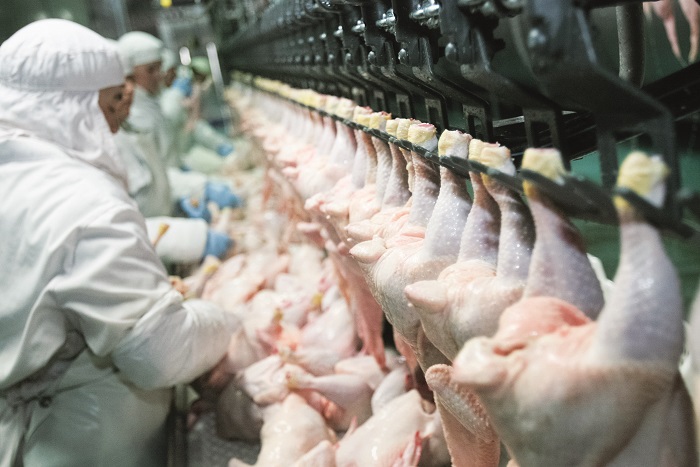Automation and globalisation will boost jobs in British cities over the coming decades, but will also deepen economic and political divisions across the country – with Northern and Midlands cities more exposed to job losses than cities in the South.
National and local leaders should act now to prepare people and places for the changes ahead, according to a major new report published today by the think tank Centre for Cities.
Cities Outlook 2018 is the Centre’s annual health-check on UK city economies, and focuses this year on the potential impact of automation and globalisation in driving both jobs growth and job losses in British cities over the coming decades.
Firstly, it reveals that 1 in 5 existing jobs in British cities are likely to be displaced by 2030 as a result of automation and globalisation – amounting to 3.6m jobs in total – with retail occupations, customer service roles and warehouse jobs among those most at threat.
Significantly, however, this risk is not spread evenly across the country, with struggling cities in the North and Midlands more exposed to job losses than wealthier cities in the South. Around 18% of jobs are under threat in Southern cities, compared to 23% in cities elsewhere in the country.
Moreover, the report raises concerns that automation and globalisation will magnify the political dissatisfaction and divisions highlighted by the outcome of the EU referendum in 2016 – with many cities most at risk of losing jobs also among those which voted most strongly for Brexit.
Mansfield, for example, is home to the highest share of jobs likely to decline of any UK city, and also had the largest proportion of residents who voted in favour of leaving the EU:
Top 10 British cities most at risk of job losses resulting from automation and globalisation

In contrast, the cities with the lowest shares of jobs at risk are predominantly affluent places in the South of England which voted in favour of remaining in the European Union:
Top 10 British cities least at risk of job losses resulting from automation and globalisation

These concerns about growing economic and political divisions across the country are further compounded by Cities Outlook 2018’s findings on jobs growth likely to result from automation and globalisation.
It shows that all cities will benefit from jobs growth brought about by these changes – but in Northern and Midlands cities these jobs will largely be in low skilled occupations, while Southern cities are more likely to attract high skilled roles.
- Around 1.4m existing jobs in British cities – nearly one in ten – are in occupations predicted to grow by 2030. Between 5-10% of jobs in all British cities today are in occupations predicted to grow in future (with the exception of Oxford, Cambridge and Brighton, where the share of jobs expected to increase is higher). Moreover, the emergence of new industries will bring new jobs which do not currently exist – just as the rise of sectors such as the IT industry did over the past century.
- However, successful cities in the South are better placed to secure more high skilled, high paying jobs in future. The cities least exposed to losing jobs are also home to larger shares of high skilled private sector occupations which are expected to grow by 2030. For example, nearly 50% of jobs predicted to increase in Cambridge – and a third of those in Oxford and Aldershot – are in high skilled private sector occupations. The large numbers of high skilled private sector jobs in these cities will also help them to attract more jobs in new industries and occupations which emerge in the future.
- In contrast, struggling cities in the North and Midlands are more likely to see growth in low skilled private sector jobs – and so could fall further behind. Only 1 in 10 jobs predicted to grow by 2030 in cities such as Mansfield, Blackburn and Sunderland are in high skilled private sector occupations, while 3 out of 10 are in low skilled private sector occupations. This growing reliance on low skilled private sector jobs means that the gulf in living standards and wages between struggling Northern and Midlands cities, and wealthier places in the South, will continue to widen in the coming decades.
Commenting on these findings, Andrew Carter, Chief Executive of Centre for Cities, said: “Automation and globalisation will bring huge opportunities to increase prosperity and jobs, but there is also a real risk that many people and places will lose out. The time to act is now – national and local leaders need to ensure that people in cities across the North and Midlands can share in the benefits these changes could offer.
“That means reforming the education system to give young people the cognitive and interpersonal skills they need to thrive in the future, and improving school standards, especially in places where jobs are most at risk. We also need greater investment in lifelong learning and technical education to help adults adapt to the changing labour market, and better retraining for people who lose their jobs because of these changes.
“In an evermore divided country, it’s increasingly clear that a one-size-fits-all approach from central government is inadequate to address the myriad issues that different places face. The challenges and opportunities ahead for Blackburn are very different to those for Brighton. The Government needs to give cities more powers and resources to tackle the issues that automation and globalisation will present, and to make the most of the benefits they will bring.”


